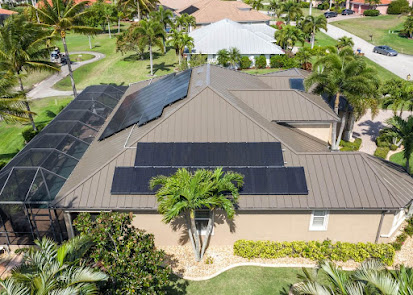Get To Know The Types Of Commercial Roofing And Their Implications!
Types of Commercial Roofs
Commercial roofs are of three types - flat, low slope, and pitched roofs. Commercial roofing contractors install flat roofs easily and quickly, while commercial property owners find flat roofs more cost-effective than projected or sloped roofs. They can easily set up solar panels, AC, and other such systems on flat roofs. The roof companies use different types of material in roofing, including rubber rolled roofing, PVC, bitumen, TPO, and rolled metal roofing. The property owners have multiple color options in roofing membranes. However, white membranes are excellent at maintaining temperature because of their reflective properties. Despite all benefits, flat roofs have poor drainage and are more prone to leakage and water damage.
Low Sloped Roofs
Many factories, warehouses, and industrial buildings have low-sloped roofs, which allow smooth water runoff. The slope directs the water flow toward valleys, saddles, and drains. The roof area is less than high-pitched roofs for the same surface size. The property owners can safely place the solar panels and air conditioners on the low-sloped tops made of different materials as mentioned earlier. However, commercial roofing contractors recommend modified bitumen due to additional thickness and superior sealing capabilities. Some manufacturers also offer extended warranties for this roofing system.
Pitched Roof
Pitched roofs are primarily for residential buildings and are part of the whole roofing system. The steep roofs allow quicker fall off of liquid, debris, and snow. They prevent the risk of water accumulation, leaks, or mold damage and require less maintenance than flatter roofs.
The roofing systems have evolved over the years, so many variants are available with different features and costs. Commercial roofing contractors typically have sound knowledge of roof materials and their installation techniques besides their costs and benefits. They can guide the selection of roof material based on the type of roof, the warranties, complexity of installation, cost, maintenance required, lifespan, and problems with each roofing system.
The Bottom Line
As commercial roofing is not a DIY project, property owners must select the right one for ideal and cost-effective roofing. They can search online with the words ‘roof contractors near me’ and go through their websites and rankings for more information about their services. The owners should also hire professionals to repair the small leaks and issues, as a tiny mistake can result in mold or more extensive damage at a later stage.

.jpg)


Comments
Post a Comment